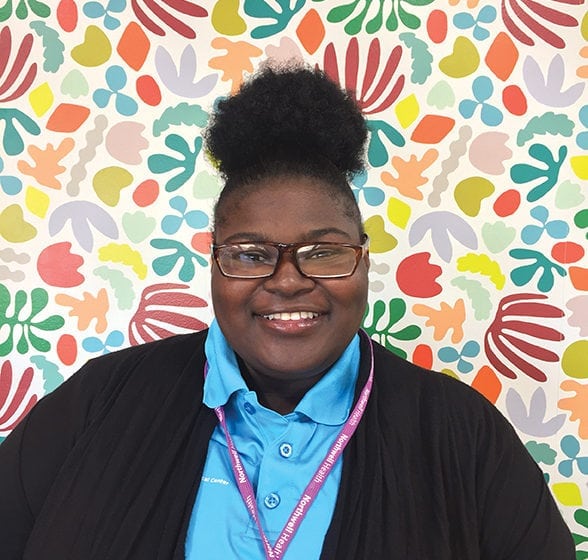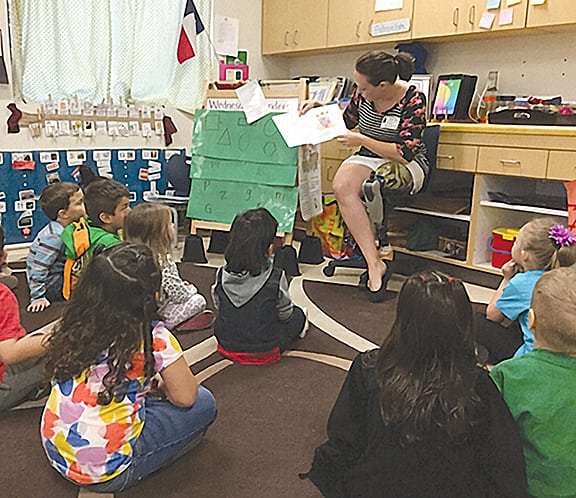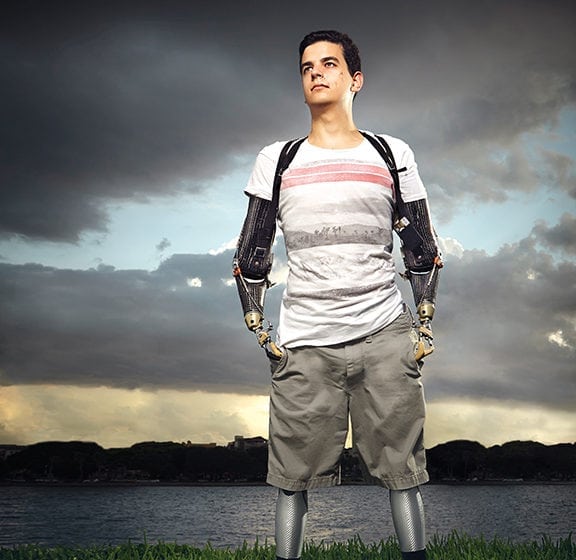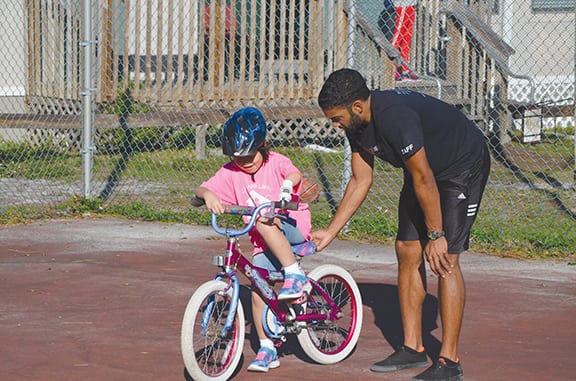
From Mentee to Mentor
Twenty-four-year-old Bryanna Copeland of Franklin Square, New York, understands the importance of mentoring.
Born without a fibula and tibia in either leg, Copeland became a bilateral amputee at a very early age. With a supportive mom behind her, she ventured out on her own at age 10 to attend a camp for amputees.
There Copeland met kids from all over the country who also had limb differences, something she didn’t have in her small Long Island community. She also had her first experience with mentors.
“When I was a camper, it gave me hope and encouragement to overcome different obstacles in my life and helped me learn how to adapt as a double amputee,” Copeland says. She was sad when she aged out of the camp, but she had a plan.
“Once I exceeded the age qualifications for participation, I felt an obligation to come back as a camp counselor in order to mentor younger campers, just as I had been mentored when I was their age,” she shares.
Recent anecdotal research on mentorship has shown positive connections between mentored children and their increased confidence and optimism. Partners for Youth with Disabilities (PYD) cites a 1995 study in The Journal of Rehabilitation that showed mentored youth with severe disabilities reported significantly higher levels of disability-related self-efficacy and significantly more knowledge of strategies used to overcome barriers to community independence.
Copeland is now in graduate school in Pennsylvania studying to be a licensed clinical social worker. She is a living mentee-to-mentor success story.
“My mentors have inspired, as well as challenged, me, and I believe this is where my perseverance comes from today,” shares Copeland. One of her mentors who she met in college, told her, “If you don’t speak up for yourself, who will?” Copeland says, “As I go about my daily life, I keep that in the back of my head.”
For Copeland, it’s easy: “When I am mentoring people, my goal is getting them to see the wonderful people they are and how great they can be. I hope to teach them skills that will help them in their day-to-day lives.”

From Depression To Determination
Lindsay Clark of San Antonio, who is now 33, was also born with a limb difference but had a completely different experience after her amputation. She had proximal femoral focal deficiency (PFFD) and wore a prosthetic shoe lift to compensate for her shorter femur from the time she was 9 months old until she decided to have her leg amputated at age 22 due to pain in her hip, back, and knee. She says that even though having the amputation was the best decision she could have made since it led to a better quality of life and mobility, the first few years after the amputation were not easy.
“After my amputation, I had eight years of a very deep depression,” Clark says. “I didn’t have anyone that I felt understood anything I was going through. I adapted well physically, but emotionally and mentally, it was a completely different story. In 2011, my daughter’s birth brought me out of my sadness. I realized that I did not want her to see me hiding myself and my leg because that would be teaching her to not love herself and her imperfections. That’s when one day, I just woke up and put shorts on for the first time in eight years.”
Clark has not looked back. During that time, she says she decided that she wanted to be a mentor to others so they wouldn’t have to go through the same struggles she did.
Clark applied and was selected to be a counselor at a youth camp for amputees. As the cabin counselor for 14-year-old girls, she was able be a positive role model and provide emotional support and encouragement to young women at a crucial time in their lives.
“I learned so much from the kids who attended the camp. The way they lived life, the amazing attitudes they have about life, and the smiles I saw on their faces each morning because they were not ‘different’ there was amazing,” shares Clark. “They were able to be themselves because they were around kids who understood firsthand their same struggles. I would say that I did mentor them, but in reality, they mentored me.”
Many mentors feel the same way—that they are getting something personal and positive for themselves from their mentorship experiences.
Along with her camp counseling, Clark also mentored people before and after their amputations through the nonprofit organization Amputees Beyond Life’s Expectations (ABLE) when she lived in Arkansas. Since she didn’t have such assistance when she was struggling with life after her amputation, providing her personal story, helpful tips, and proof that there is life after amputation is something she is proud to be able to offer others. When she moved to San Antonio two years ago with her daughter and new husband, Clark set out to find a career that would help others.
“I want to be able to help people get through their new lives as amputees—mentally and emotionally,” Clark says, “because the worst part of an amputation could be when you don’t have anyone to talk to and ask questions. If I can help one person get through that and not struggle with the emotional and mental problems I had for so many years, that alone makes my heart happy.”
Clark currently volunteers as a spokesperson for The Prosthetic Foundation, which helps fund prosthetic limbs for people who can’t afford them. She recently started a job at a local prosthetic company where she is a full-time amputee advocate. “My job is the most rewarding job I’ve ever had, and I look forward to helping someone every day,” she says.

From Struggle To Strength
Pedro Pimenta, from Brazil, has also made mentorship a major part of his life. A recent college graduate, Pimenta lives in St. Petersburg, Florida, where he is a volunteer and an inspirational speaker, but that wasn’t always the case.
At 18, Pimenta had his whole life ahead of him when he contracted bacterial meningitis. He wasn’t expected to survive the deadly disease, but he did. Six months after being admitted, he left the hospital in a wheelchair with his will and determination intact even though the infection had taken his limbs above the knees and elbows.
According to his website, “no other amputee in his situation had successfully lived a life on prosthetics.” But being athletic and strong-minded, Pimenta knew he could and would overcome this adversity. Having support and role models was an integral part of his journey.
“Before I met my mentors, I was really struggling,” Pimenta says. “I was stuck in a wheelchair with almost no independence. It was very difficult for me and my family. It was only when I met Cameron Clapp, a fellow triple amputee, that my life changed for the better. He still is a great mentor and also one of my best friends in life.”
Within ten months, Pimenta says he was out of the wheelchair and using his prosthetic legs and arms as if they’d been a part of him forever.
“As my overall skills developed, I started to get [asked] more questions about how to do things and live life with prostheses. Because my family and I really struggled during my own rehabilitation, the right thing to do was to try and assist as many people in similar situations as possible.”
Today, at 26, Pimenta says he mentors mostly kids and young adults at various sponsored amputee clinics and, like Copeland and Clark, at a youth camp for amputees.
“I help amputees regain their independence through the use of prostheses and encourage them to live a happy life,” he says. “I enjoy working with kids because they are so positive and like to just have fun. The clinics allow me to impact the whole spectrum of amputees. My goal is to teach others that it’s possible to be independent and fulfilled as an individual with limb loss.”

Mentoring With No Limits
One of the programs Pimenta is involved with is Camp No Limits’ INSPIRE Program, launched this year. According to Cameron Johnson, program director, INSPIRE is a mentorship program designed for the 5-to-18-year-old campers and siblings who attend Camp No Limits.
“The purpose is to foster personal development and the pursuit of whatever it is that inspires each individual and would allow them to be more independent and influential in their communities and future endeavors,” Johnson explains. “The mentees are paired with one or two older mentors based on personal connections, common interests, or professional advice, age, and intentions. The ultimate goal is to take the empowerment the kids feel at camp and spread the positive message of independence, ‘diversability’ awareness, and acceptance into their respective schools and neighborhoods across the country.”
Johnson says that it’s vital to let the children know they’re not alone. “Their uniqueness is something to embrace and let shine, not hide from the world,” he adds.
That’s a concept that Clark agrees with wholeheartedly. “By helping people like me, they help me get through life as well. It has helped me know I am not alone and I have people I can always turn to when I do feel alone.”
For more information about the INSPIRE Program, visit www.nolimitsfoundation.org/inspire-program.



